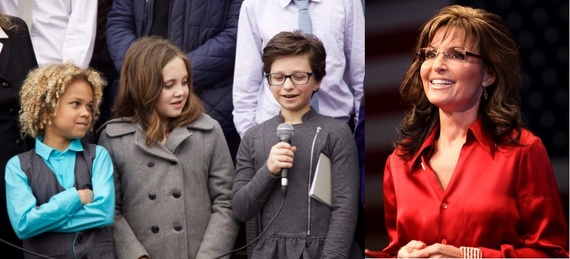The big climate story this month should have been a lawsuit. Twenty-one young plaintiffs sued the U.S. government, including President Obama, for failing to act to stop climate change. Our Children's Trust and the so-called "Climate Kids" claimed that young Americans would face future harm caused by older generations. Rising tides, wildfires, hurricanes, and mass food shortages would be their undeserved inheritance.
And the court bought it. That is, Magistrate Judge Coffin ruled that the kids had standing to bring the suit. The Feds' motion to dismiss was denied.
Here's the thing: Surviving that motion to dismiss wasn't easy. The D.O.J. argued forcefully that there is no constitutional right to a pollution-free environment. The court characterized the plaintiffs' theory as something "novel," a cross between a civil rights suit and a Clean Air Act/Clean Water Act claim. Many courts would have been reluctant to enter this new legal territory.
The key issue before the court was standing. As Judge Coffin wrote, federal courts are not the forum for airing generalized grievances about federal policies. To establish standing, the Climate Kids needed to allege an injury that was concrete, imminent, and particularized.
Youth helped them show particular harm. Climate change affects all of us, but the plaintiffs contended that it will affect them more and for a longer period than older folks (who will no longer be around). The kids also needed to counter the argument that their case was premature. Judge Coffin admitted that the claim was "nascent," but ultimately found this to weigh in their favor. The court should not delay the case simply because society is continuously learning about the human causes of climate change. The lawsuit should continue in order to further develop the record and determine the facts.
In short, the Climate Kids were allowed to keep fighting. That in itself is a really big deal.
And yet, the Climate Kids were certainly not the most widely reported climate story in recent weeks. That would be Sarah Palin. At the Washington premiere of the anti-climate change film Climate Hustle, she mocked Bill Nye as a climate change alarmist. "Bill Nye is as much a scientist as I am," said Palin. In terms of formal training, her claim is disingenuous. Nye is a graduate of Cornell University's School of Mechanical & Aerospace Engineering. Palin has a bachelor's degree in communications.
Media coverage of the Palin-Nye spat completely eclipsed the Climate Kids. This seems predictable - we have a chronically long-lasting fascination with her antics. But there's more to this unfortunate trend. Whenever a political figure weighs in on the environment, it suddenly becomes the big climate story. The Clinton-Sanders exchange on climate at the Brooklyn debate was hyped as a "dumpster fire." Earlier this year, Trump dominated headlines by declaring that global warming was a hoax perpetrated by the Chinese to make U.S. manufacturing non-competitive.
And let's not forget about entertainers who aren't running for political office. Leonardo DiCaprio famously devoted his 2016 Oscar acceptance speech to climate, generating extreme Twitter praise and outrage for "preaching" about the issue.
I mean no disrespect to Leo's speech, in which he comes across as an authentic and passionate advocate for the cause. But it reflects the very distressing paradigm in which we are currently thinking about climate. We have decided that climate change is primarily a political and cultural - rather than a legal - issue.
That's a shame. Despite the many failings of our court system, there is also a great tradition in American jurisprudence of our courts sometimes being ahead of the culture. The Supreme Court decided Brown v. Board in 1954, at least a decade before most Southern states would have been willing to voluntarily desegregate their public schools. When 1963's Gideon v. Wainwright determined that criminal defendants have the right to an attorney even if they cannot afford one, the Court effectively created the modern public defender system.
With talented lawyering, and perhaps a bit more public support, the Climate Kids could join this same tradition of positive, progressive judicial decision-making.
To say the courts should have a role in combating climate change is not to diminish the political and cultural aspects of the issue. It's multi-dimensional, clearly. The point is that we cannot allow the climate change debate to be continually reduced to a battle of big personalities. When it comes to climate change, liberals and conservatives alike should rally behind an old American idea: we must be a "government of laws, and not of men."
Let's use those laws to protect our kids.

